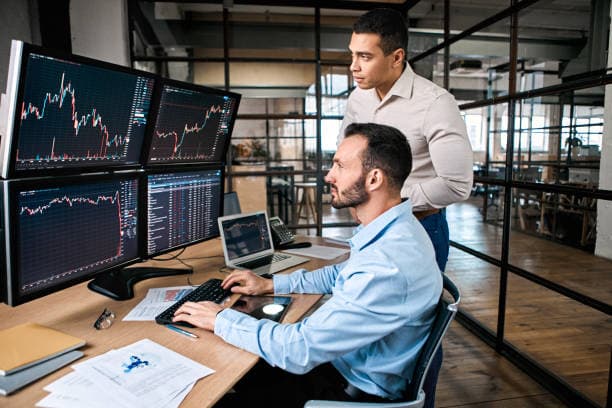What are the potential risks of cryptocurrency exchanges? What investors need to be aware of
With the popularity of cryptocurrencies, more and more people are investing and participating in cryptocurrency trading. The operation of exchanges and the volatility of the market have brought about many potential risks. This article will explore the common risks associated with cryptocurrency exchanges and provide information on what investors should be aware of when choosing an exchange. Whether you are a novice or an experienced investor, understanding these risks will help you make more informed decisions and avoid unnecessary losses.

Security Risks of the Exchange
The security of cryptocurrency exchanges is one of the first things every investor considers. Many exchanges have had hacking incidents that resulted in the theft of large amounts of money. For example, in 2014, the Mt. Gox exchange in Japan was hacked and lost up to 850,000 Bitcoin, which was valued at about $400 million at the time. Therefore, when choosing an exchange, investors should check to see if it has strong security measures in place, such as double authentication (2FA), cold wallet storage, and regular security audits.
Compliance Risks of the Exchange
With the increasing regulation of cryptocurrencies in many countries around the world, the compliance risk of exchanges cannot be ignored. Some exchanges may be at risk of being shut down or fined for failing to comply with local government regulations. For example, some exchanges may provide services without authorization, which puts investors' capital at risk. Investors should choose an exchange that has a good track record of compliance and transparent operations, and ensure that it complies with local laws and regulations.
Market volatility risk
The extreme volatility of the cryptocurrency market is another major risk that investors must face. The volatility of the price of cryptocurrency can result in large profits or losses in a short period of time. For example, the price of Bitcoin has fluctuated by more than 20% in a single day. such volatility can be highly risky for short-term traders, but for long-term holders, it can be an opportunity to realize gains. Investors should assess their own risk tolerance and choose a trading strategy based on their investment objectives.
Platform liquidity risk
Liquidity risk refers to the lack of sufficient buyers and sellers in the market when a trade needs to be executed, making it impossible to trade at the desired price. This is especially true for currencies with low trading volumes. When liquidity is low, investors may experience "slippage", i.e. trades executed at undesirable prices. To minimize liquidity risk, investors should choose a mainstream exchange with high trading volume and wide acceptance.
Fraud and False Platform Risks
As the cryptocurrency market grows, fraudulent platforms and fake exchanges are emerging. These platforms often offer unreasonably high returns to attract unsuspecting investors. When you find a platform that offers too much, you need to be vigilant to avoid falling into the trap of fraud. For example, some platforms use the Ponzi scam model, which pays early adopters upfront, but ultimately causes the platform to collapse, leaving later investors with huge losses. When choosing an exchange, you should check its background, ratings and user reputation.

Fee Structure Risks of the Exchange
Cryptocurrency exchanges usually charge a certain amount of commission or transaction fees that will affect your trading costs. The fee structure varies greatly from exchange to exchange, with some charging higher fees for trading and others offering lower fees or rebate programs. Understanding an exchange's fee structure can help you minimize unnecessary expenses. For example, the OKX exchange offers a rebate program that allows users to receive a discount on their fees based on trading volume, which is especially attractive to high-frequency traders. Choosing an exchange with transparent and fair commission fees can increase your return on investment.
Regulatory Risk
The current regulatory environment for the cryptocurrency market is imperfect, and policies on cryptocurrencies vary from country to country. Some countries may impose stricter regulations on cryptocurrency exchanges or even ban their operation. Other countries may have less stringent regulations on cryptocurrency exchanges, which may pose legal risks. Investors should familiarize themselves with the legal environment of the country where the exchange is located and choose an exchange that complies with local regulatory policies and protects their funds.
Frequently Asked Questions Q&A
1. How to choose a secure cryptocurrency exchange?
When choosing an exchange, the first thing to check is its security measures, including dual identity verification, cold wallet storage, and whether it has a history of hacking. Choosing an exchange with a good reputation and high trading volume can also reduce risk.
2. What fees do cryptocurrency exchanges charge?
Most exchanges charge a trading fee, a withdrawal fee and possibly a switching fee. Fee structures vary, so it is important to understand their fee policies in detail when choosing an exchange.
3. What are the risks of investing in cryptocurrency?
The cryptocurrency market is extremely volatile and can result in high gains or high losses. In addition to market volatility, there are also exchange security, liquidity issues and regulatory risks that require investors to exercise caution.














